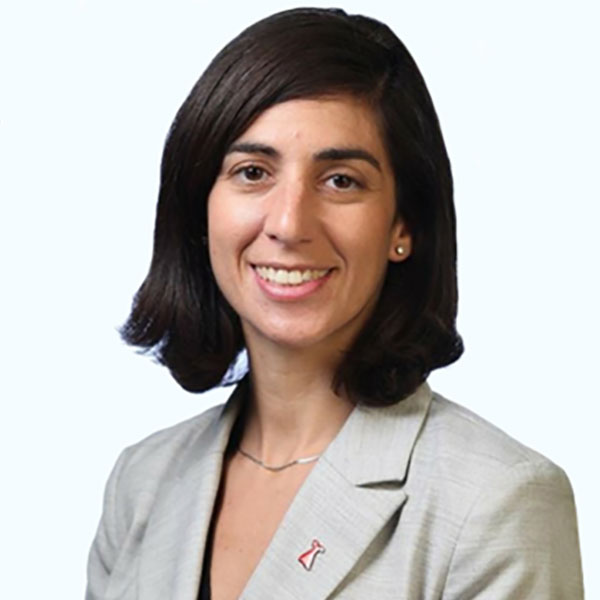#ChooseCardiology: Rebecca M. LeLeiko, MD

FEATURE | My desire to be a cardiologist started sometime in medical school, then blossomed in residency. I did not have one defining moment in my life – no strong family history of coronary artery disease or premature deaths that led me to it early on.
Instead, it was a constant, reinforcing interest that was routinely piqued every time I encountered a cardiology patient, procedure or EKG.
The road was not always easy, and for many women, it is not always clear-cut. While I felt very comfortable in the world of internal medicine, cardiology felt much less welcoming.
I admit to being intimidated by so many men, young and old, who populate cardiology divisions.
There were those who, unaware of their own biases, questioned my ambitions even when they shared the same ones. As my own male co-residents confidently professed their future career goals, I was quiet and reserved about my own plans, subconsciously leaving myself options.
Now, I am glad I stuck with it and I am happy to think that future generations of aspiring cardiologists will have more diverse programs to look up to. I was also fortunate to have female role models each step of the way.
Just by their presence, they reminded me that if they could accomplish their goals during a time when they were surely the only woman in the room, nothing should stand in my way.

Cardiology is a diverse and varied field; it naturally should appeal to varied people and personalities. From proceduralists to imaging specialists, and everything in between, cardiology offers many different career options.
Today, I practice general cardiology and vascular medicine. I love general cardiology because of the relationships I form with my patients and hearing about their families while managing their risk factors.
At the same time, I have the privilege of navigating them through life-changing events and diagnoses.
Almost half of all adults in this country have some form of cardiovascular disease. The one benefit of these extraordinary numbers is the vast amount of data available to help guide treatment.
I often tell this to my patients, explaining that they benefit from medications and interventions with excellent data to support their usage. Moreover, ongoing trials ensure that the very best care options will continue to be defined.
This contributes to a satisfying and attractive field of medicine now, and far into the future.
Vascular medicine is a natural extension of cardiology, focusing on the vasculature outside of the heart. As a noninvasive vascular cardiologist, I medically manage a host of arterial and venous diseases, often together with my invasive and surgical colleagues.
I love to practice the combination of general cardiology and vascular medicine. I love the "bread and butter" cardiology and I find great satisfaction in it.
Vascular medicine is a great complement to this, at times utilizing secondary prevention data that is well known to general cardiologists, and other times navigating relatively rare and understudied vascular diseases.
I have been in practice for five years and I would not change my career path for anything. I continually encourage trainees, especially women, to consider cardiology for their future.

My advice to women considering cardiology is to follow your instincts and seek those who support your goals. There will always be people that, consciously or not, question your choices for the wrong reasons.
As our field welcomes more women to the ranks, I hope those in training will not have to explain themselves as frequently or feel the burden of representing their entire gender.
I often have patients tell me that they are happy to see a female cardiologist. Some even prefer it. It is our duty to ensure our patients have diverse options when they are choosing a doctor.
Likewise, our field will become that much stronger when it accurately reflects our patient population.
I have been extremely fortunate to have a supportive spouse and family to lean on over the years. I also have two little girls who know that their mama "takes care of people's hearts" to inspire me for years to come.
I would not have it any other way.

